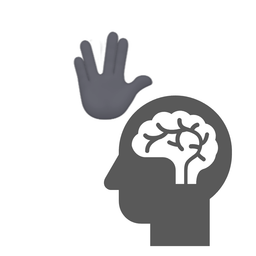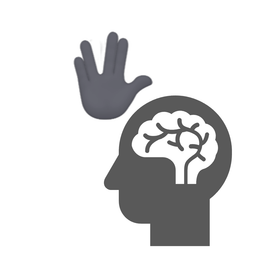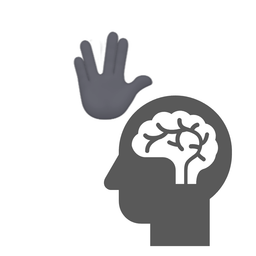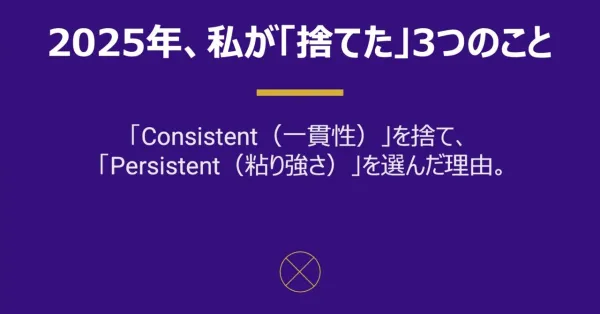How to Choose What Matters - 大切なものの選び方
Feeling stretched thin? Align your calendar with what truly matters. Read a simple 10-domain framework + a weekly workflow to protect the time that fuels you. 本当に「全部やらなきゃ」を続ける必要はあるか。価値観を定めて守る時間を先に入れるだけで、日常の選択が変わる。記事で具体ワークを公開。

🇯🇵日本語は英語の後に続きます。
How to Choose What Matters
Practical framework to align daily choices with your deepest values
Feeling like you must do everything but you just don’t have enough time.
Do you ever feel like that?
This sentence splits into two parts. Viewed as cause and effect, the first half is the cause and the second half is the effect.
Do you really have to do everything
Not everything is important.
In life, not every problem needs solving.
Until now, most productivity writing focuses on the micro level — the how-to, the specific tactics. This piece instead explores the macro question: how do we define priorities in the first place.
What counts as "important"
"Important" things are those that align with our value system.
If someone asked you, "What matters most to you?" or "What are your values?" you might not be able to answer right away if you’ve never seriously thought about it. Most people have thought about these questions at some level, but they don’t always treat them as primary, guiding questions.
When your values aren’t clear, you’re likely to spend time on things that aren’t that important to you. You’re also more likely to be swayed or limited by other people’s opinions and expectations.
Life always includes tasks you don’t particularly want to do but must do, like paying bills, doing chores, or finishing assignments. Valuing things that match your values doesn’t mean abandoning those duties; it means focusing on what matters to you and spending as much time as possible on those things.
Values can typically be grouped into the following categories.
Mahatma Gandhi said: “Happiness is when what you think, what you say and what you do are all in harmony.”
Personal Values Made Clear
Values are the short list of things that make that harmony possible. Below are ten practical value domains presented simply, each paired with focused prompts you can use to decide how much it matters to you.
10 Common domains of values
- Family Relationships
- Marriage / Romantic Relationships
- Parenting
- Friendship / Social Life
- Career / Work
- Education / Personal Growth
- Recreation / Leisure
- Spirituality
- Community / Citizenship
- Health
Family Relationships
Define the tone and boundaries of your ties with parents, siblings, and extended family.
- Prompts: How often do you want contact? What role do you want to play (supporter, mediator, distant relative)? What limits do you need to protect your time and energy?
Marriage and Romantic Relationships
Clarify what you want from a partner and what you give in return.
- Prompts: What qualities matter most in a partner? How much time and emotional energy should the relationship get? Do you want formal commitment like marriage?
Parenting
Specify your intentions and involvement as a parent or potential parent.
- Prompts: How involved do you want to be in daily life and decisions? What legacy do you want your children to say about you? Is parenting essential to your life plan?
Friendship and Social Life
Decide the depth and style of your friendships and social habits.
- Prompts: Do you need many casual friends or a few deep friends? How will you maintain connections (calls, meetups, trips)? What do friends provide for you emotionally?
Career and Work
Pin down what meaningful work looks like and how much of your life it occupies.
- Prompts: Is status or impact more important? How many hours do you want to commit? Do you value autonomy, income, influence, or creative freedom?
Education and Personal Growth
Choose how much you value learning and inner development across your life.
- Prompts: Do you prioritize formal degrees or continual skill learning? How often will you invest time in growth? What skills or qualities matter most to develop?
Recreation and Leisure
Decide the role of rest, play, and hobbies in your wellbeing.
- Prompts: What relaxes and energizes you? How regularly will you schedule leisure? Do you see leisure as essential or optional?
Spirituality
Define your relationship with meaning, belief, or transcendent practice.
- Prompts: How central are spiritual beliefs to decisions and relationships? How much time will you devote to practice or reflection? Do you need spiritual similarity in close relationships?
Community and Citizenship
Decide how and how far you want to contribute beyond your immediate circle.
- Prompts: Do you want local impact or broader reach? What causes matter enough to volunteer time or resources? Is leaving a legacy important to you?
Health and Wellbeing
Specify the priority you give to physical and mental resilience.
- Prompts: How much time will you allocate to sleep, movement, and mental care? What trade-offs are acceptable between health and other values?
How to Use These Ten Domains to Choose What Matters
- Write down each domain and rate it 1–10 for current importance and 1–10 for time you actually spend on it.
- Identify your top five by importance, not by current time spent.
- For each top domain, list one concrete change you can make this week to align time with importance.
- Ask what you will say no to in order to protect each top domain.
- Use recent moments of strong fulfillment to spot which domains repeatedly show up.
Be specific, not vague. Replace “family” with “call my sister every Sunday” or “career” with “build a side practice that allows flexible hours.” Small, named actions reveal real priorities and let you move time toward what matters.
How values affect productivity
Once we clearly define and understand our values, we gain a clearer standard for judging what is most important, what is of secondary importance, and what is not important.
After that, the task is simple: choose — prioritize the things that matter most to you and let go of things that are unimportant or that conflict with your values.
It’s important to distinguish between a momentary “want to do” and what is truly “important” because that distinction greatly influences long-term outcomes.
We live in an age of constant temptation — scrolling social feeds, watching short videos, eating junk food — activities that provide quick gratification but do not sustain long-term personal growth. This links to the issue of flow quality I discuss elsewhere.
We can’t completely eliminate tasks that must be done yet don’t directly support our values. This piece does not promote aimless “follow your impulses”; it aims to offer a high-level roadmap for planning tasks from the perspective of a long, multidimensional life.
So, What will be the change you want to make today?


大切なものの選び方
価値観を軸に時間を設計する

考えと言動の一致が生む時間の使い方
「考えること、語ること、行うことが一致したとき、人は幸せになる」──マハトマ・ガンジー。
「何でもやらなければ時間が足りない」と感じるとき、その感覚を二つに分解すると前半が認知(そうあるべきだと思っていること)、後半が体感(時間不足の実感)になる。まず認知を整えれば、体感が変わる。最初の問いは単純だ。本当にすべてやる必要があるか。
本当に「何でもやる必要がある」のか
すべてが重要ではない。人生には本質的に解く必要のない問題が存在する。生産性論の多くはミクロなテクニックに偏りがちだが、本当に重要なのはマクロな問い──そもそも優先順位をどう定義するか、だ。
「重要」とは何か
「重要」とは、自分の価値観に沿うことを指す。
「自分にとって最も大切なものは何か」と問われて即答できないなら、優先基準が曖昧である証拠だ。価値観が不明瞭だと、重要でないことに時間を奪われ、他者の期待に振り回されやすくなる。必須の雑事(請求書、家事、課題など)は無くならないが、価値観に沿うことに意識と時間を配分することで、限られた時間を本当に大切なことへ振り向けられる。
価値を検討するための10領域
以下の十領域は、自分の価値を検討するための実用的な分類だ。各領域に具体的な問いを向け、答えを言語化すると優先順位が見える。
- 家族関係
- 結婚・恋愛関係
- 子育て
- 友情・交友
- キャリア・仕事
- 教育・自己成長
- 余暇・レクリエーション
- 精神性(スピリチュアリティ)
- 地域・市民性(コミュニティ)
- 健康・ウェルビーイング
各領域への問い(例)
家族関係:連絡頻度はどれくらいか。自分はどの役割を果たすか。
結婚・恋愛:求める資質は何か。関係にどれだけ時間を割くか。
キャリア:地位と影響、どちらを優先するか。何時間を仕事に割くか。
健康:睡眠・運動・メンタルケアにどれだけ投資するか。
(その他の領域も同様に問いを立て、具体的に言語化する。)
実践ワークフロー
- 各領域を書き出し、重要度を1〜10で評価する。過去1週間の時間配分も1〜10で評価する。
- 重要度で上位5領域を抽出する(現状の時間配分ではなく価値としての重要性で判断する)。
- 各上位領域について、今週できる具体的で小さな行動を一つ設定する。
- その行動を守るために「何を断るか」を決める。
- 最近の満足体験を振り返り、どの領域が関与していたかで優先が裏取りされるか確認する。
曖昧な目標は避ける。「家族」ではなく「毎週日曜に姉に30分電話する」「キャリア」ではなく「週5時間、副業で顧客開拓をする」など、小さく具体化することで優先順位が可視化され、時間配分が動く。
守りたい時間から逆算する
まず守りたい時間を決め、それを軸に他の予定を逆算して設計する。この順序が、価値観に基づくプロダクティビティの第一歩になる。多くの人にとって「この時間だけは絶対に守りたい」と感じる時間がある──家族との夕食、週末の読書、何もしない余白。成果や効率とは無縁に見えても、最も価値ある時間であることが多い。だからこそ、まずその時間をカレンダーに入れ、その後で他のタスクを配置する。守るべき時間を中心に設計すれば、選択の軸がぶれにくくなり、忙しさの中でも「自分らしさ」を保てる。
選択の質を高める問いかけ
「今やるべきことは何か?」という問いには、優先順位や緊急度だけでは答えられない。「何もしない」という選択肢を含めるべきだ。優先度が高くても今行うべきとは限らないし、緊急でも価値観に反するなら立ち止まる価値がある。選択の質は「納得感」で測定できる。
ToDoに取りかかる前に立ち止まり、「これ、本当に今やるべきか」「やらなければならないのではなく、やりたいか」「やる意味があるか」を自問する習慣を持つ。筆者が自ら投げかけている問いは次の三つだ。
- このタスクは、自分の価値観に沿っているか。
- 今、このタイミングで行う意味はあるか。
- 他の選択肢と比べて納得感があるか。
「優先度×緊急度」の四象限は便利なツールだが、それに支配されてはいけない。価値観に照らして能動的に選択することで、行動に納得が生まれ、その納得感がプロダクティビティの質を決める。
価値観が生産性に与える影響
価値観を明確にすれば、何が最重要で何が二次的かを判断する基準が得られる。基準があれば選択は単純化する──重要なことを優先し、価値に反することや重要でないことを手放す。短期的な「やりたい」と本当に「重要」なことを区別する能力こそ、長期的な成果を左右する。現代は誘惑が多いが、誘惑に流されず価値を軸に設計することが、持続可能な成長につながる。
今日、どの価値に小さな行動を一つ捧げるか。小さな一歩が、時間と自己の調和をつくる。
🇬🇧Subscribe for personal value analysis and tracking form in English.







